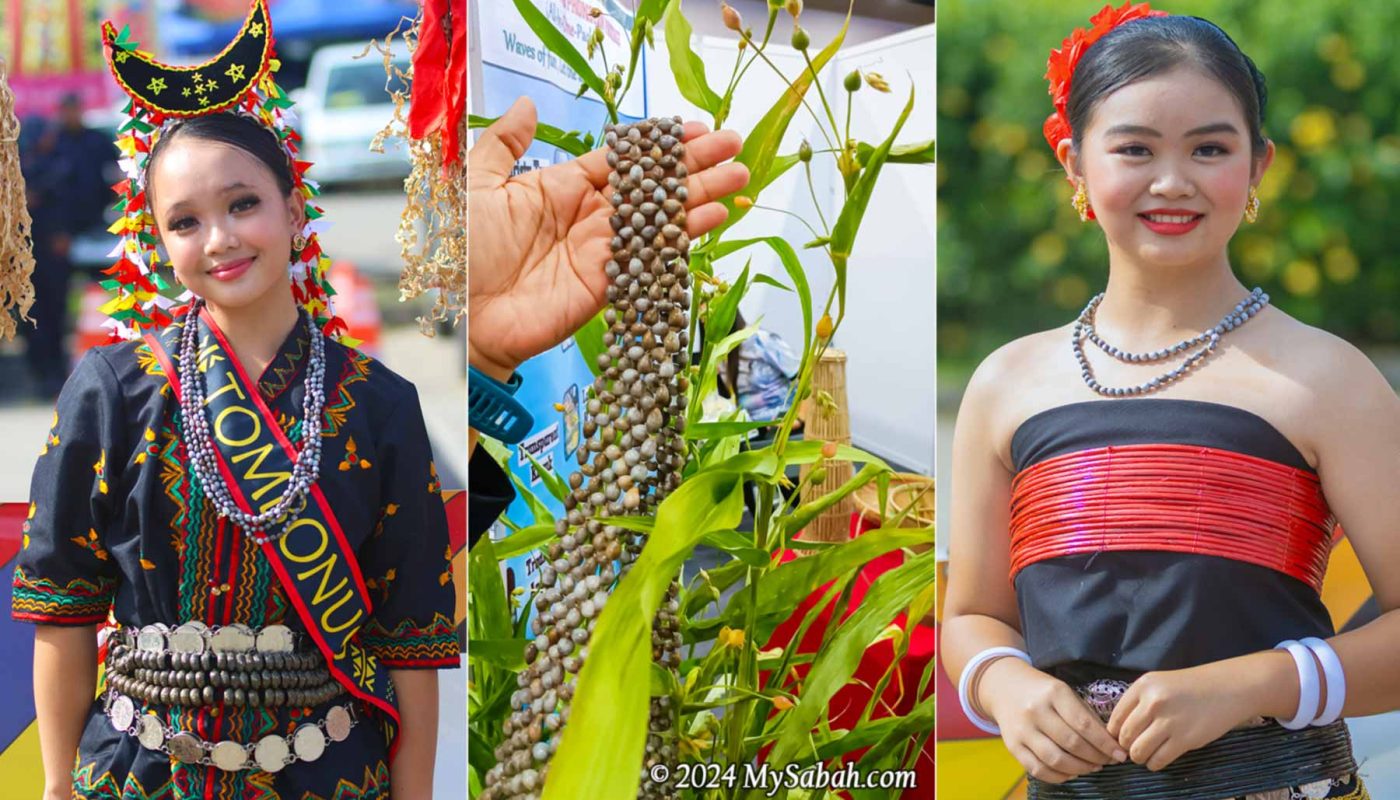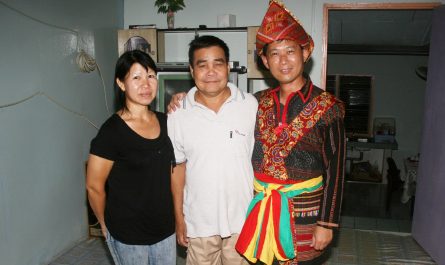Job’s Tears, also known as adlay or adlay millet, is locally referred to as Dalai or Jelai in Sabah. This plant looks like a cross between corn and grass, and its hard-shelled, woody seeds are nicknamed the “Pearls of the Borneo Jungle” (Mutiara Rimba) due to its glossy surface and teardrop shape, providing a glimmering touch to ornaments. It has been utilized in traditional medicine, food, and crafts for centuries and is often associated with good luck, prosperity, and spiritual healing.
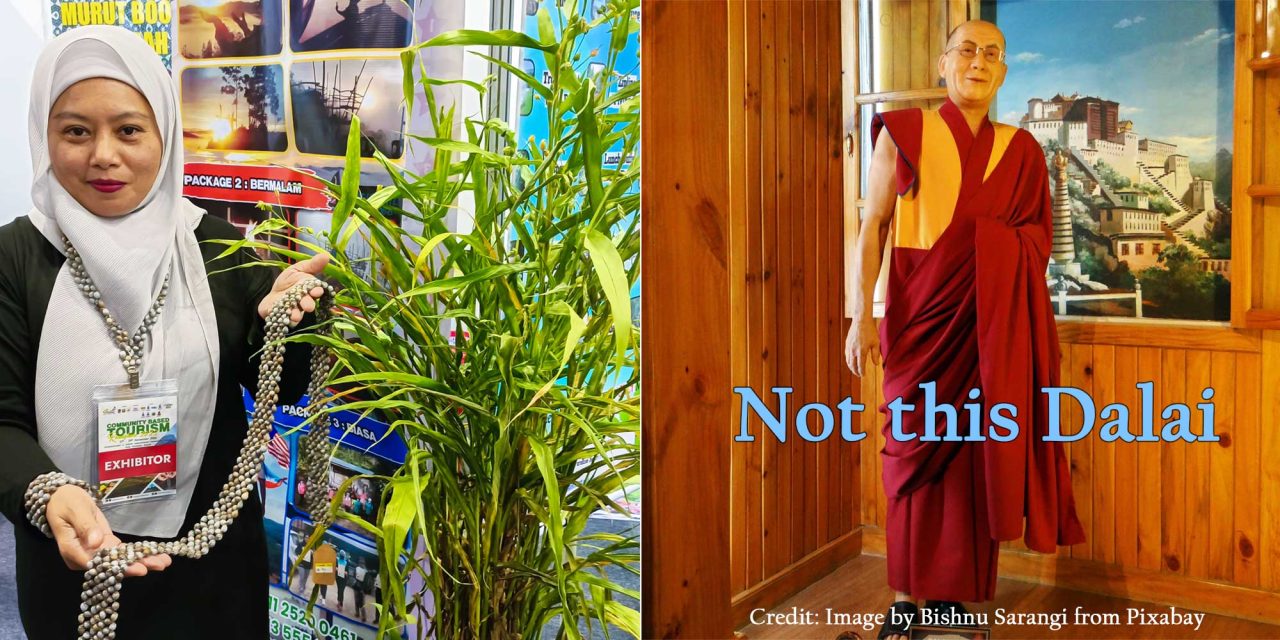
The Dalai plant is a tall, grain-bearing, perennial tropical plant scientifically known as Coix Lacryma-Jobi. The wild variety, Coix lacryma-jobi var. lacryma-jobi, has hard-shelled pseudocarps. The Dalai seeds naturally come with pre-existing holes, eliminating the need for artificial puncturing. The beads are strung together to to create various crafts, including rosaries (prayer beads), jewelry, bead curtains, and fashion accessories.
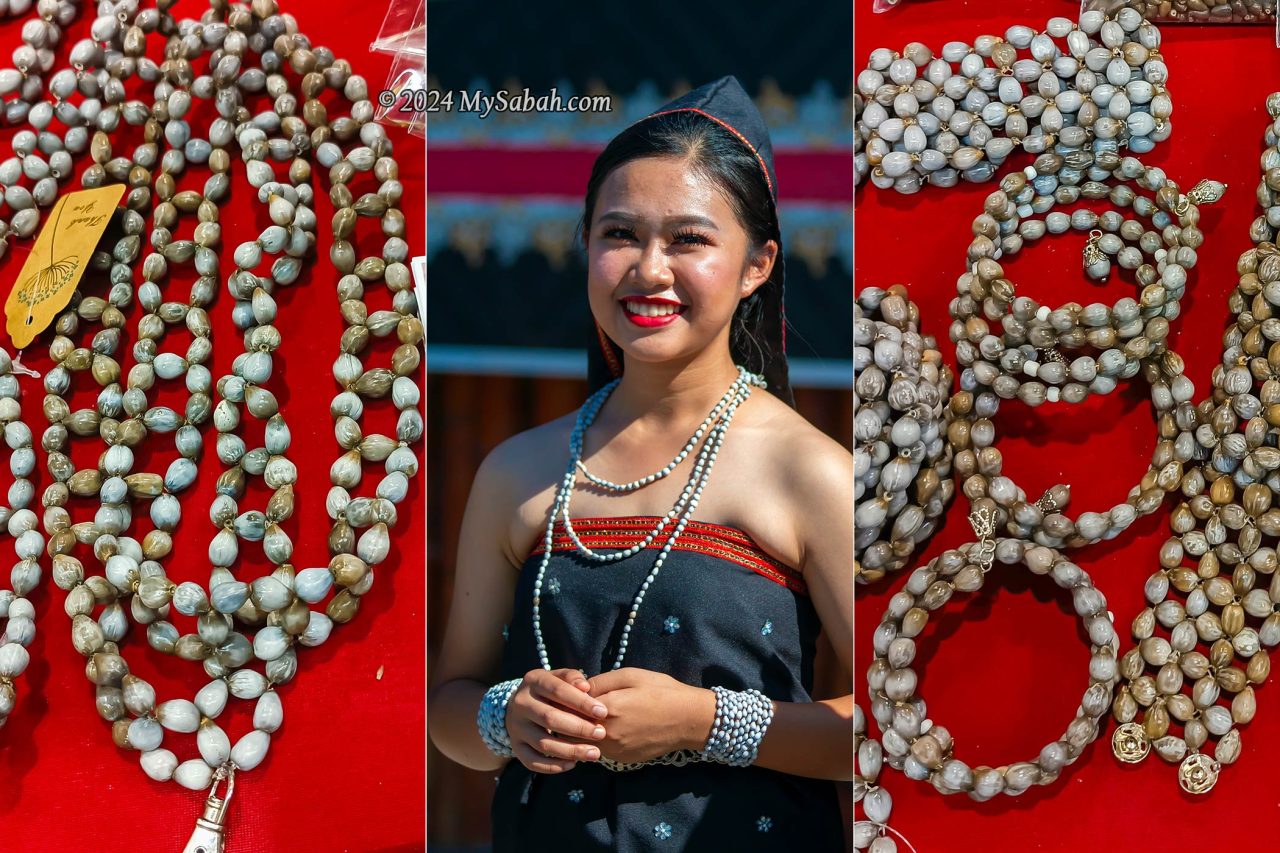
Artisans have been using Dalai beads in jewelry since 3000 B.C. Dalai has a long history as part of indigenous fashion in Sabah. I’ve observed Dalai seeds being used in the traditional costumes of the Dusun Kiulu, Dusun Liwan, Dusun Tindal, Dusun Tagahas, Dusun Malapih, and Tombonuo, the native tribes from the western and northern parts of Sabah. Dalai is primarily worn as accessories, such as necklaces, bracelets and belts. According to Wikipedia, other Borneo tribes such as Dayak, Kelabit and Kayan also use Job’s tears in their costumes.
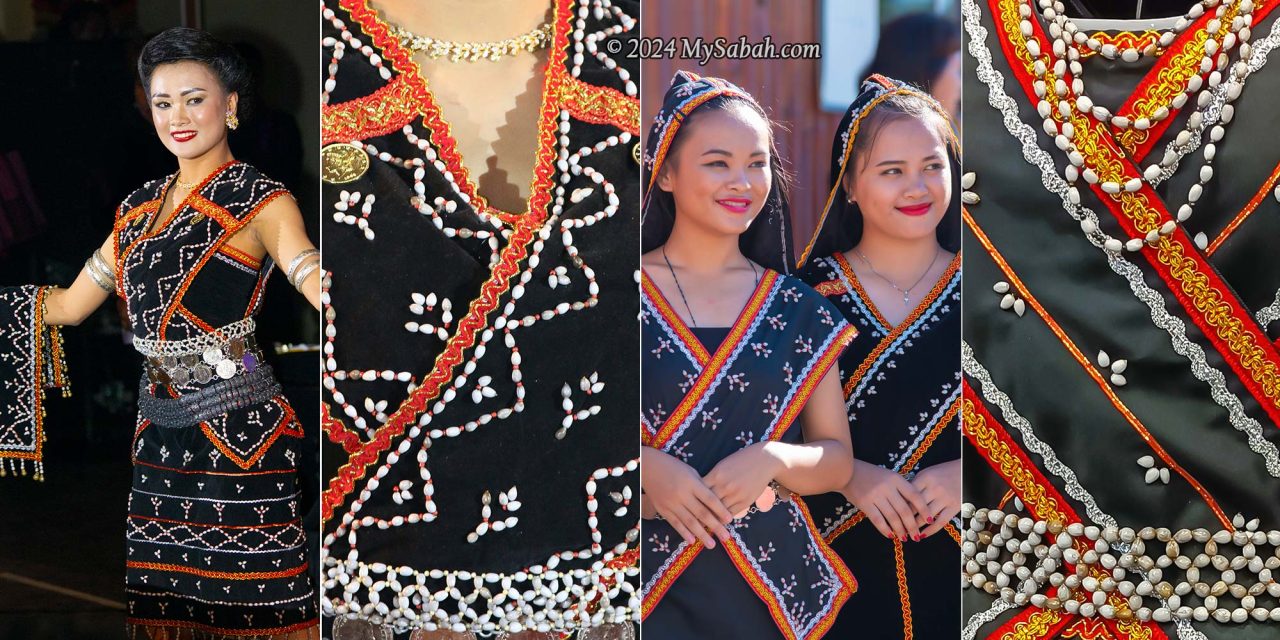
The Dusun from Kiulu use Dalai extensively in the embroidery and decoration of their Sinulamba dress, one of the most unique garments and heritages in Sabah. The Sunduk, a hood covering the head or hair, represents the dignity of a woman, while the Kurilib, cross shoulder sashes, symbolize a loving woman.
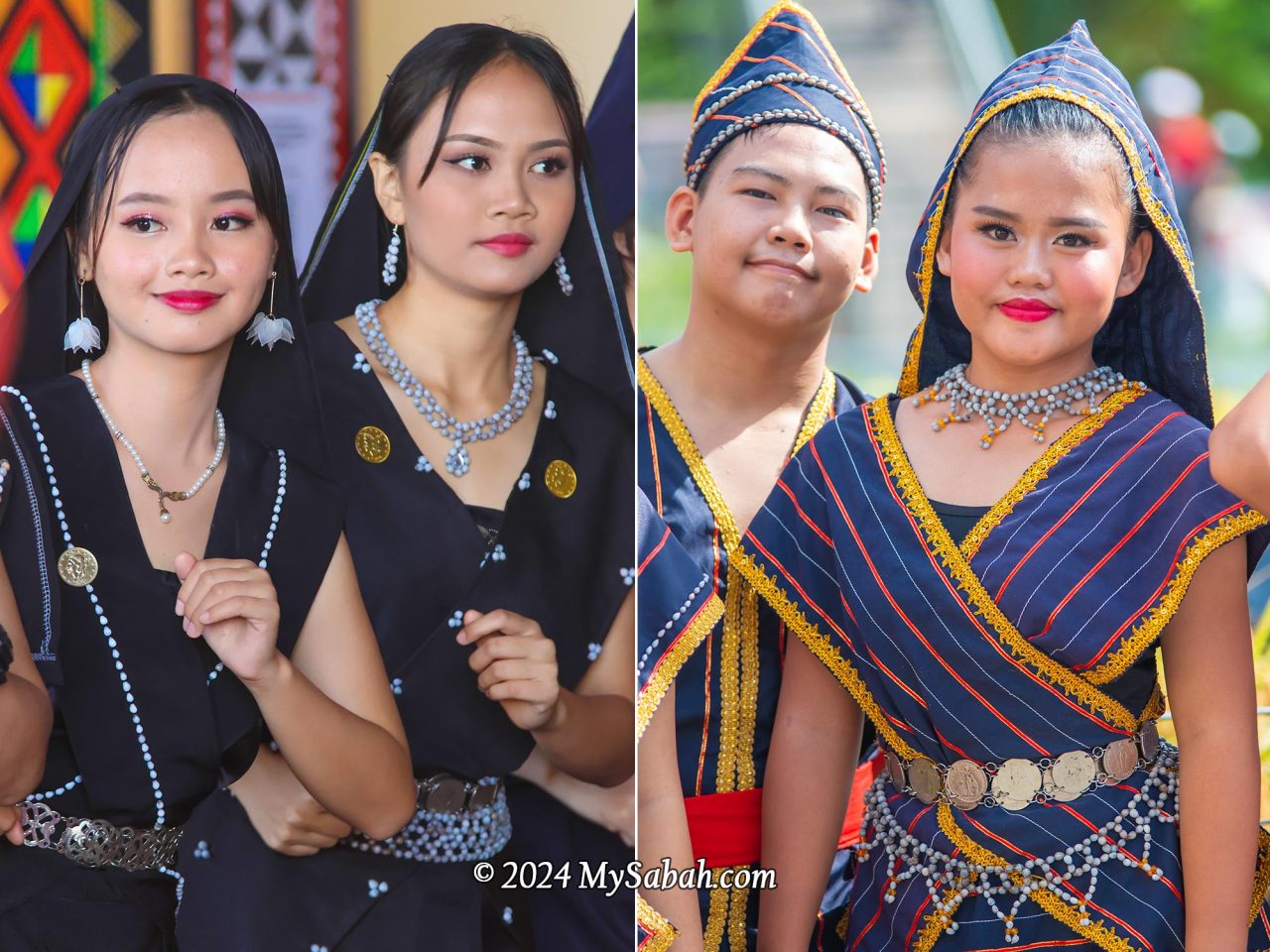
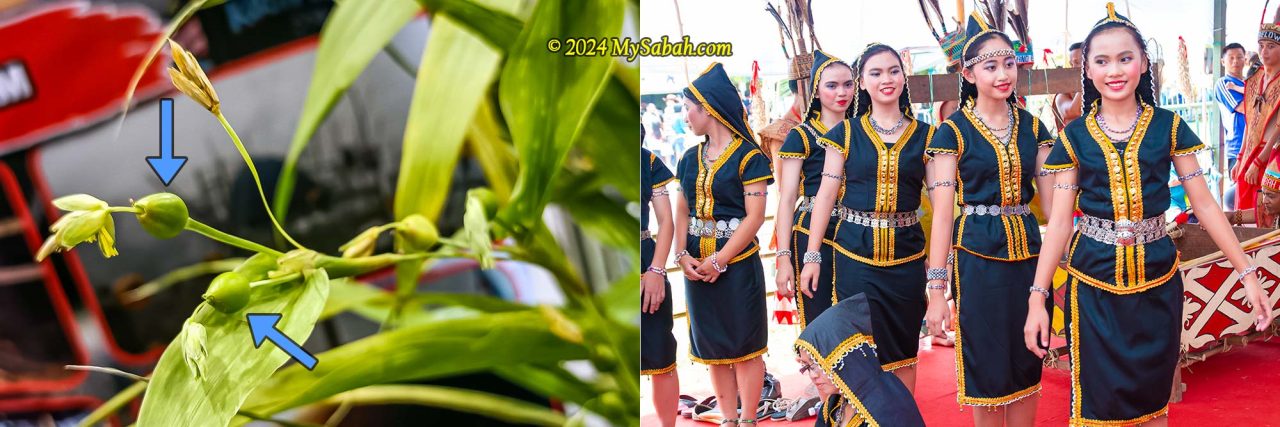
The variations in shades of grey and beige give Dalai seeds a natural appearance. Over time, Dalai seeds become shinier when in contact with the skin of their owners. For instance, rosaries made with Dalai beads may transition from a light grey to a shiny, warm chestnut brown color after being held many times during prayers. Saint Teresa of Calcutta was known to pray with Dalai rosaries.
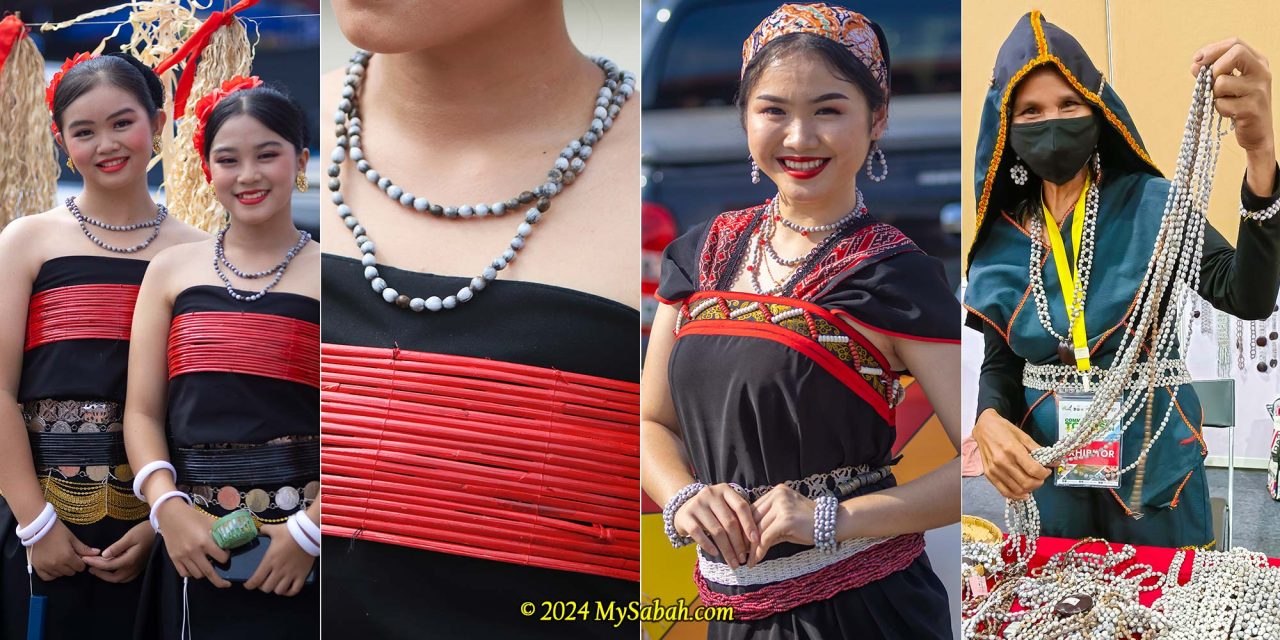
While Job’s Tears grains can be consumed as a cereal, such usage is not widespread in Sabah. The cultivated varieties, known for their soft shells, are more preferred for food. Job’s Tears is also commonly sold as Chinese pearl barley. Additionally, some Kadazandusun communities in Sabah make a decoction from Dalai leaves as a traditional herbal remedy for treating coughs or fevers.
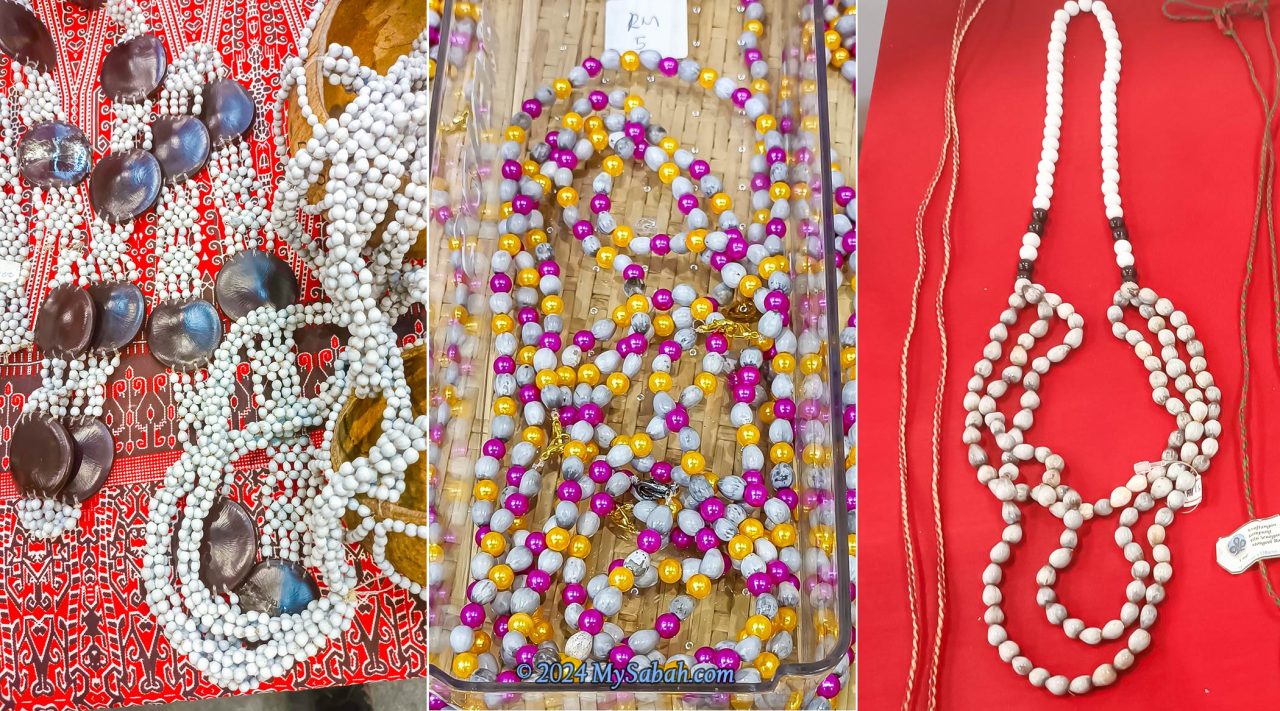
Dalai is a fast-growing and easy-to-cultivate plant that demands minimal water and fertilizer. It can reach a height of about six feet and thrive in various soil types and climates. Germination typically occurs as early as seven days after sowing, with flowering taking approximately five months.
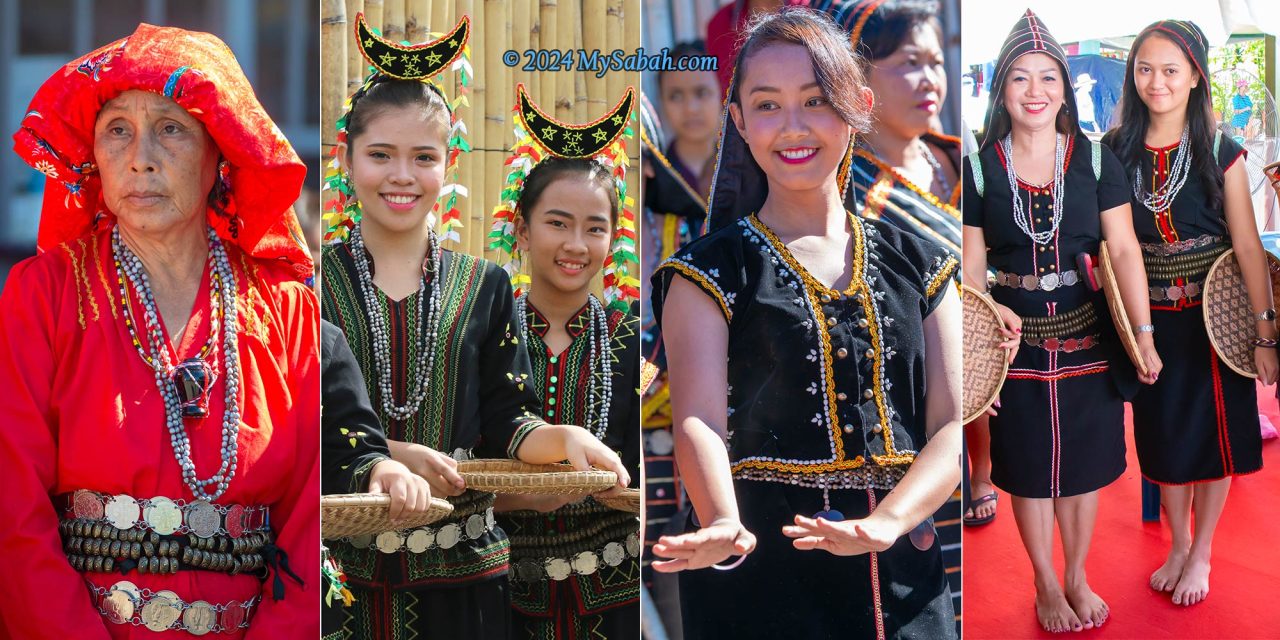
Job’s Tears derives its name from the story of the prophet Job, as mentioned in the Bible and the Quran. Job, a devout follower of God/Allah, faced a challenge to his faith when Satan caused him to lose his wealth, children, and health. Despite enduring a life of misery, Job did not complain. Throughout his ordeal, he remained steadfast in his belief and continued to love God as always. In the end, God rewarded Job with more than he had before. According to legend, when the tears of Job touched the soil, tall grasses sprouted, bearing oval seeds resembling his tears. This is how the name ‘Job’s Tears’ came about.
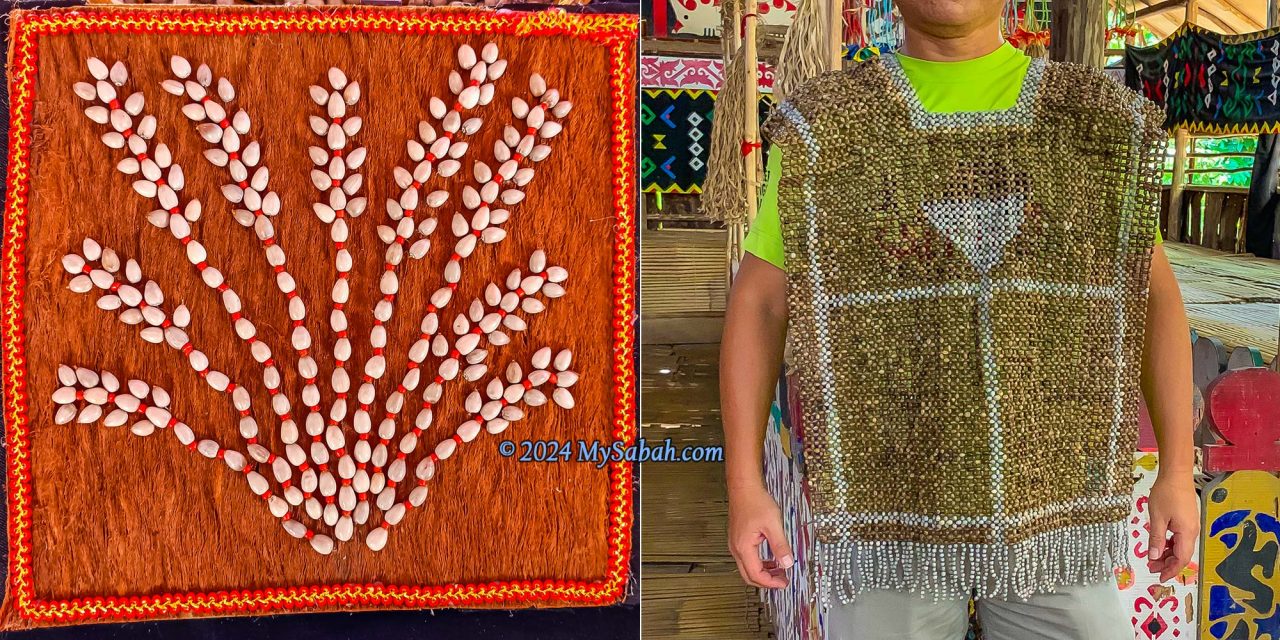
Dalai seeds come in over 10 variations of colors, shapes, and sizes, such as Tuntul, Watu, Oitom, providing artisans with ample creative possibilities in design. For more information on buying, planting, or learning about Dalai, you can contact the following groups via their Facebook pages:

Photos taken in Sabah, Malaysia Borneo
